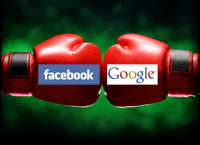Note: This piece was first published in the Northern Dispatch (Nordis) Weekly (www.nordis.net) on July 17, 2011. I made some minor editing for this post.

Of course there is only one Internet. It is composed of many parts, to be sure, and there are many ways of “surfing it.” But it is just one big whole, just as there is only one global ocean even if it’s composed of many parts and there are many ways of travelling through it.
So, why must the question be asked at all? Why should we be concerned whether the Internet takes this or that shape?
It is because the technology for delivering Internet resources to people is constantly changing, and if you are an Internet user, you must at least have some idea of how these changes affect your online usage – your access to information, your ease of use, and your privacy.
Let us put it this way: If I were an Internet user back in 1994 (which I was), when the online world had a very different shape, I would be using a very different set of tools to navigate its waters and utilize its resources. It was a time when users accessed the Net through Unix-like “shell programs” so they could send and fetch email, access remote sites (through telnet), download files (through FTP), and do limited multi-site searches (through such ancient tools as Gopher and Archie).
Internet use in those years was, in the words of a 17th century philosopher, “solitary, poor, nasty, brutish and short.” The World Wide Web was then unknown or inaccessible to many users. It was just a flimsy layer growing in dispersed patches of the Net – a mysterious part of the cyber-ocean that only the most intrepid explorers could reach.
From 1995 onwards, however, the Web rapidly grew until it became the dominant interface by which more and more online users “surfed the Net” with increasing ease and speed. The old and terse Internet sites that could not (or opted not to) shift to the Web receded into obscurity – even if they were very useful to users, such as ftp.sunet.se and locis.loc.gov and rtfm.mit.edu, to name just a few – to be replaced by their more user-friendly Web counterparts.
The more basic online services were still there: mail and ftp, for example. But increasingly, they retreated into the background, mere islets in the vast and expanding universe of Web-based services. Websites proliferated instead, from simple personal home pages (with ugly tildes in their URLs) to well-maintained institutional sites, all the way to huge commercial sites with thousands of subscribed users and high volume of daily traffic. Indeed, for the next generations of users, the Web was THE Internet.
Now, 15 years later, the Web-atop-the-Internet is once more at a similar crossroads. This time, two Internet behemoths are battling it out to decide whose platform is going to shape the online usage and habits of hundreds of millions of Web users, whose platform is going to redefine the Internet. These two giants are busy growing in size, acquiring more and more internal organs and external appendages with which to encompass the whole of cyberspace.
Facebook wants to be the “next Internet,” in the sense that it wants you, the average Internet user, to step on its platform, to ride its trains all day long, and to contemplate the rest of the online world from its point of view. In short, it wants you to wear FB eyeglasses most of the time, if not permanently. If you find yourself opening FB as your first daily ritual online, spending long hours there compared to other sites, then you have in fact chosen the FB train, enjoying your window seat, seatbelt and all.
Like FB, however, Google wants to be the “next Internet” too. It also wants you to step on its platform, ride its trains all day long, and see the rest of the online world from its point of view – wearing its own customized eyeglasses of course. Google offers its users a somewhat different mix of services: it specializes in bringing you categorized information and email, while FB specializes in connecting you to other people you might know or want to know.
Thus, because Google and FB specialized in different services in earlier years, they could coexist and even complement each other in people’s minds. As Eric Mack of PCWorld put it, “Perhaps one day Google+ will be the place I go to get things done, while Facebook remains a destination for socializing. Nobody ever said my relationship with social networking had to be monogamous, after all.”
But in the past year or so, the two have increasingly stepped on each other’s turf and toes, forcing more and more users to rethink their loyalties. Facebook launched its own mail, chat and low-profile search, while its rival launched its own FB-like Google+. Meanwhile, Yahoo – Google’s old rival – has fallen behind in many respects. So it is now mainly a two-way race between FB and Google.
FB is not a weakling, as it boasts of a 750-million user base [800 million as of September 2011—ed.] that can provide clout when push comes to shove. It taps into the natural need for people to check on family, meet friends, share tidbits of information, play games and pass the time in a relaxed and casual way. It is the online equivalent of a huge park-playground-outdoor café complex, and many Internet users will find that dumbed-down atmosphere as their perfect or preferred escape from work. FB wallows in the least common denominator.
Google, on the other hand, feels like an extension of the workplace or classroom, offering countless new ways to explore and exploit the expanding cyberspace. It is where you go when you want to do no-nonsense communication and cloud-computing, to check facts, to search maps, and to browse through news. In my opinion, Google hews more closely to the original spirit that drove the explosive growth of the Internet and the Web.
Not that Google is the perfect platform for this decade’s increasingly intelligent Internet users, because it is not. I sure hope that a still better platform comes up, which is neither Google nor Facebook, but something else that directly arises from TCP/IP and a language akin to HTML or XML. But until that time comes, I’m watching this particular battle very closely. In the long run, pumping up smarts will win over dumbing down. I am thus betting that Google will win and Facebook will lose. #

